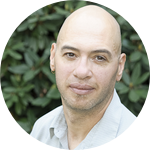About This Project
Achievement and persistence of college students with disadvantaged backgrounds (e.g., low-income, first-generation college student) still lag behind that of more advantaged peers despite widely-implemented financial/academic support programs aimed at closing the gaps. Within such a program, my dissertation will test the effectiveness and psychological mechanisms of an intervention designed to boost disadvantaged students' wellness and success by providing additional social-psychological support.
Ask the Scientists
Join The DiscussionWhat is the context of this research?
Interest has been sparked by new social-psychological interventions (e.g., difference-education; social-belonging) that reduce gaps between more and less advantaged groups on outcomes (e.g., GPA) representing constructs (e.g., achievement) perennially studied by educators and psychologists. Difference education informs students how their different backgrounds (e.g., whether parents went to college) lead to important differences in college transition experiences. To test its efficacy, I will insert it (and control) into a financial/academic support program. To test how it works, I will measure success (e.g., GPA) and wellness (e.g., self-esteem) outcomes and hypothesized mechanisms, like sense of belonging and seeking resources for help, over incoming students' first year.
What is the significance of this project?
This is a scientific solution to a pressing social justice issue: equal access to education. To the extent that difference-education improves wellness and success outcomes, it improves the health and economic opportunity of a disadvantaged group of people, namely, low-income students.
In addition to being fundamental to knowledge accumulation, independent replication is essential for determining the effectiveness of interventions and understanding mechanisms through which they operate (e.g., belongingness). For this specific intervention, appropriately testing within supposedly insufficient financial/academic support programs is crucially needed.
What are the goals of the project?
I have several goals for this project; those most central reflect the project's significance.
Practically, I aim to help people. In particular, I aim to increase achievement, persistence, engagement, and mental/physical health of low-income students, in the short term. And in the long term, I aim to scale up the intervention to close advantage-generated gaps, generally.
Scientifically, I aim to help my field. In the short term, I aim to pre-register on Open Science Framework and independently replicate a study published in a high-impact journal as well as rigorously test the claims made by the study's authors. And in the long term, I aim to explore plausible causal chains, other than those theorized, through which intervention affects GPA and other downstream outcomes.
Budget
The total operating budget is $16,950, which includes another study that I'll describe in a labnote. I have pulled together $10,900 from various institutional resources (and pretty much exhausted them). Now I need YOUR HELP covering the remaining $6,050 (+ $484 for overhead) of the cost of this important and timely project!
The proceeds from this crowdfunding effort go toward payments to low-income students for their participation. As the budget currently stands in its minimal form, payments are pretty small: $15 for one 1-hour panel-discussion workshop and four 20-minute surveys. I would love, love, LOVE to pay students more; wouldn't you? If the current goal of $6,534 is reached, I will initiate a stretch goal to do just that. Thanks in advance for your support!
Endorsed by
Meet the Team
Team Bio
Let's get personal, so you know why this matters to me and that I can grok structural advantage and disadvantage. In my picture to the left, you see a white, male face: advantage. I'm not gonna front; I've capitalized on it, mostly in later years of my life. Beneath the advantaged exterior, however, I'm a low-SES, ADHD kid from the socially-immobile American South (search Guilford Co.). Jail was a more likely future than was grad school.
I was raised by a single mom who, with 5-yr-old me in tow, became a first-generation, non-traditional college student. We were poor. Affluent peers derided us poor kids for "jolap" clothes and free lunch and other observable indicators of poverty. My mom bootstrapped us up into lower-middle-class by my preteen years, just in time to have the ADHD label bestowed on me. From then through high school, psychologically-normal peers scoffed at us "Jerry's kids" who frequented the "retard room."
Since high school, I've been able to mostly suppress the disadvantage in my past. I get it, though. I get the embarrassment and shame, frustration and rage of the disabled student. I get the cinched belt of hardship and social exclusion of the low-income student. I get the solitude and naiveté of the first-generation college student: experiential wisdom passed from my mom. And I get how knowledge of how the system works, passed from college-educated parents to college-going children, generates advantage.
For a formal record of stuff I get, see CV.
Project Backers
- 76Backers
- 100%Funded
- $6,538Total Donations
- $86.03Average Donation




